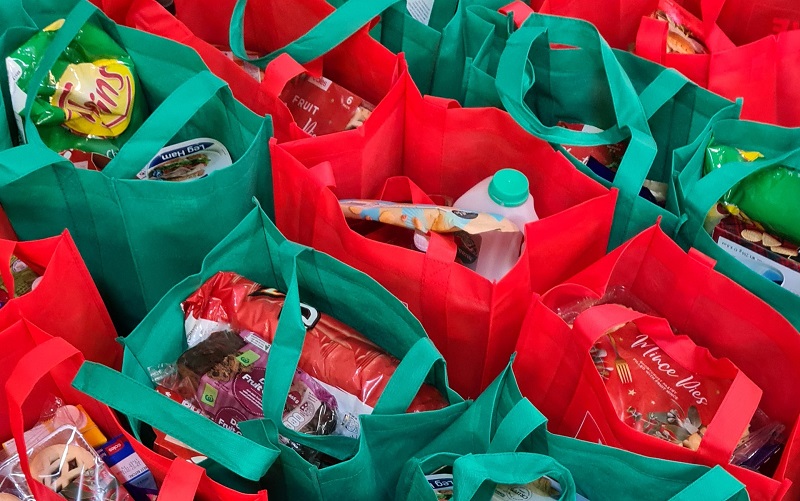More people are depending on food banks than ever before in Britain, with food bank usage in London up nearly a third.
Data from the Trussell Trust reveals the usage of food banks first soared during the pandemic when people were receiving furlough, but has increased in the last year due to the cost of living crisis.
Soaring energy prices, a slump in wages, rampant food inflation, widespread strike action and a cut in welfare benefits have led to more people struggling to make ends meet and changed the type of people relying on food banks.
Food bank usage has soared to nearly three million in the UK, up 800,000 in 12 months.
The London figures are up 100,000, from 284,000 to 384,000.
Joanna Reed, Executive Director of Bow Food Bank, and Laura Woods, manager at Ealing Food Bank said that the number of employed people visiting and relying on their services has grown in the last year.
In all parts of London, nurses and people working in gig economies are not able to make ends meet anymore so have turned to food banks.
Woods and Reed also said that the donations their food banks receive have not increased at the same rate as demand for their services.
Woods said: “Donations haven’t gone down but so many more people are relying on food banks now we can no longer provide the same support.”
Reed’s food bank is having a similar experience.
She added: “This time last year we were helping 300 families a week but now we are at 1,000 per week without the same level of funding or volunteers to make things work.”
Reed and Woods both expressed concern about the coming winter and about being able to keep up with demand.
Tina Leslie, founder of period poverty charity Freedom4Girls, reiterated a similar experience is occurring all over the country.
She said: “Due to the endless rise in interest rates, the soaring inflation, there is a new layer of people who are financially insecure.
People who previously had stability now are having to choose between heating, eating, getting to work etc.”
Leslie explained that often hygiene poverty comes last in this list and she has seen people use washing up liquid for dishes, bodies, and cleaning the house because it’s the cheapest thing.
She explained that hygiene poverty can be detrimental to mental health and lead to isolation due to embarrassment and feelings of shame.
To try and ease the effect of hygiene poverty, Leslie partners with Leeds Bradford Airport, where she picks up all the confiscated hygiene products and distributes them to local food banks and people in need.
It is clear people all over the country are struggling with the cost-of-living crisis and the crisis has led to a new layer of the population who previously experienced economic stability having to rely on food banks to make ends meet.





